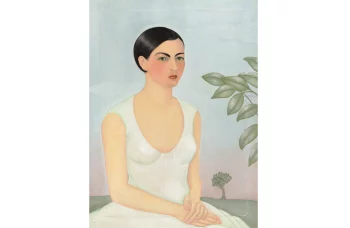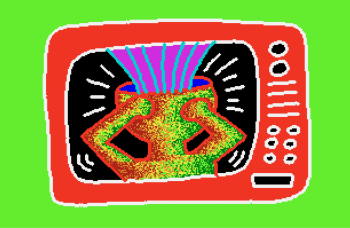Flipping through the pages of an old cookbook is often an amusing experience. While most 1950s cookbooks were made in earnest and have only become comical with age, a self-published cookbook by Pop artist Andy Warhol purposefully poked fun at the fad foods of the day. Later this month, a colour copy of Warhol’s satirical cookbook will head to auction at Bonhams in their online Fine Books and Manuscripts auction.
Printed in 1959, the cookbook was created when Warhol was still working as a graphic designer and was not yet the household name he is today. He worked with interior designer Suzie Frankfurt to concoct the cookbook and now, one of just 34 colour copies will be up for grabs with a pre-sale estimate of £22,000 to £36,000.
The book deliberately mocks the haute-cuisine cookbooks of the late 1950s that were marketed towards American housewives focused on becoming the ultimate hostess. Frankfurt created the fanciful recipes, which included nonsensical descriptions, and Warhol illustrated those recipes. Warhol enlisted his mother for her calligraphy skills to write the recipes, deliberate misspellings included, adding an extra layer of whimsy to the book.
Titled Wild Raspberries, a nod to Ingmar Bergman’s film Wild Strawberries, it included recipes like “Omelet Greta Garbo,” a delicacy “always to be eaten alone in a candlelit room.” A recipe for “Seared Roebuck” offered a savvy tip for cooks: “It is important to note that roebuck shot in ambush is infinitely better than roebuck killed after a chase.” Another cheeky recipe “to be served to very thin people” was “Chocolate Balls a la Chambord.” If those recipes weren’t strenuous enough to perfect, try “Piglet a la Trader Vics,” which suggested that home cooks “Contact Trader Vic’s and order a 40 pound suckling pig to serve 15. Have Hanley take the Carey Cadillac to the side entrance and receive the pig at exactly 6:45. Rush home immediately and place on the open spit for 50 minutes…”
The book was printed by Seymour Berlin and bound by rabbis in downtown New York City. According to Frankfurt, Warhol paid four schoolboys who lived upstairs from him to colour in the 34 colour copies.
In a 1997 interview, Frankfurt called Wild Raspberries “a funny cookbook for people who don’t cook.” She continued that she and Warhol “thought it would be a masterpiece and we’d sell thousands. I think we sold 20.” Many of the cookbooks were given away to friends in the end as gifts.
Although Wild Raspberries didn’t become the success they expected, it wouldn’t be the end of Andy Warhol’s food-based works. Just a few years after illustrating Wild Raspberries, he created the first of his Campbell’s Soup Can prints, which still infatuate fans and inspire artists today. Green Coca-Cola bottles, bananas, and Life Savers were among other foods that inspired Warhol and in 1982, Warhol was filmed eating a Burger King burger as part of a work called “66 Scenes from America” by Danish filmmaker Jørgen Leth.







